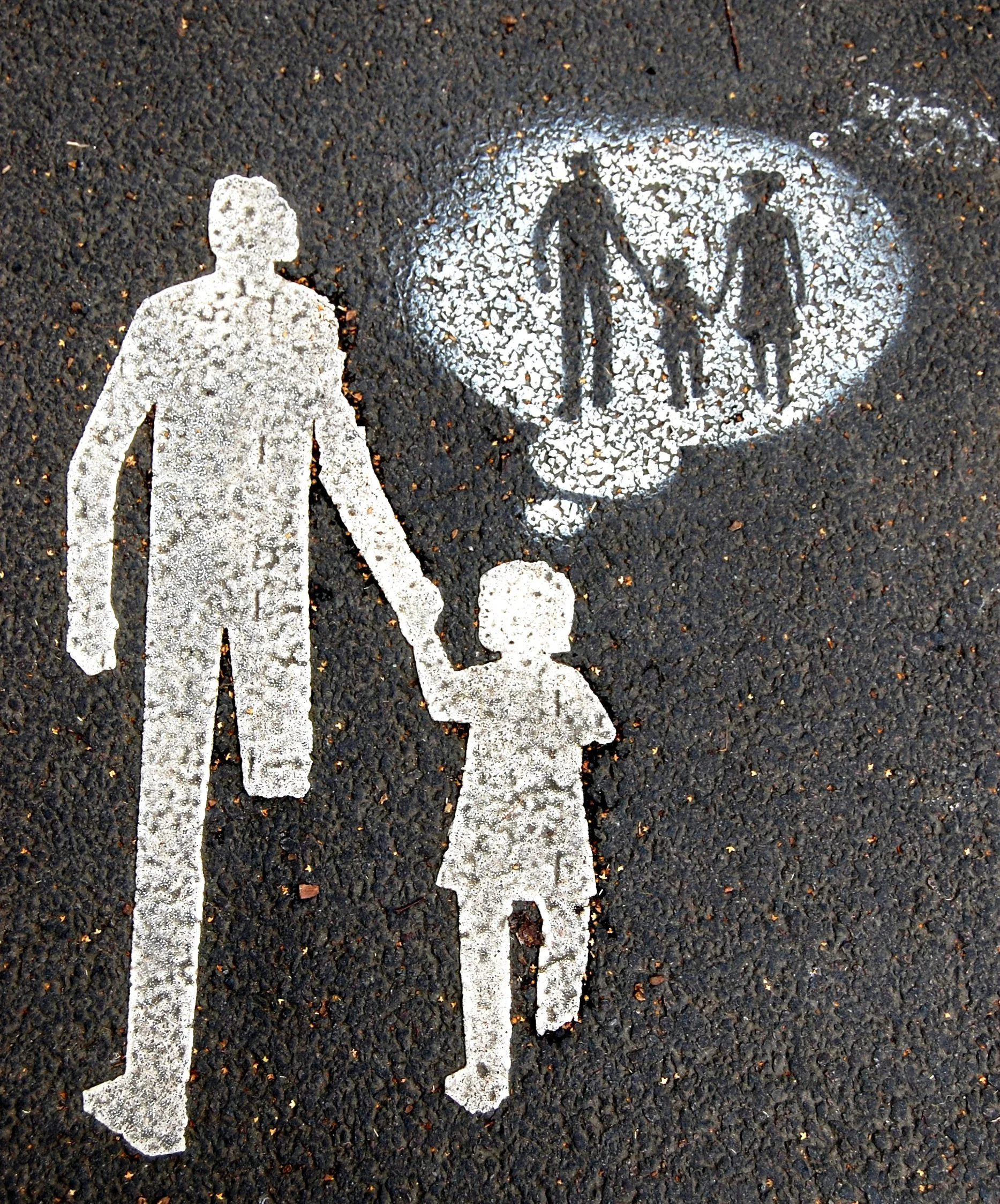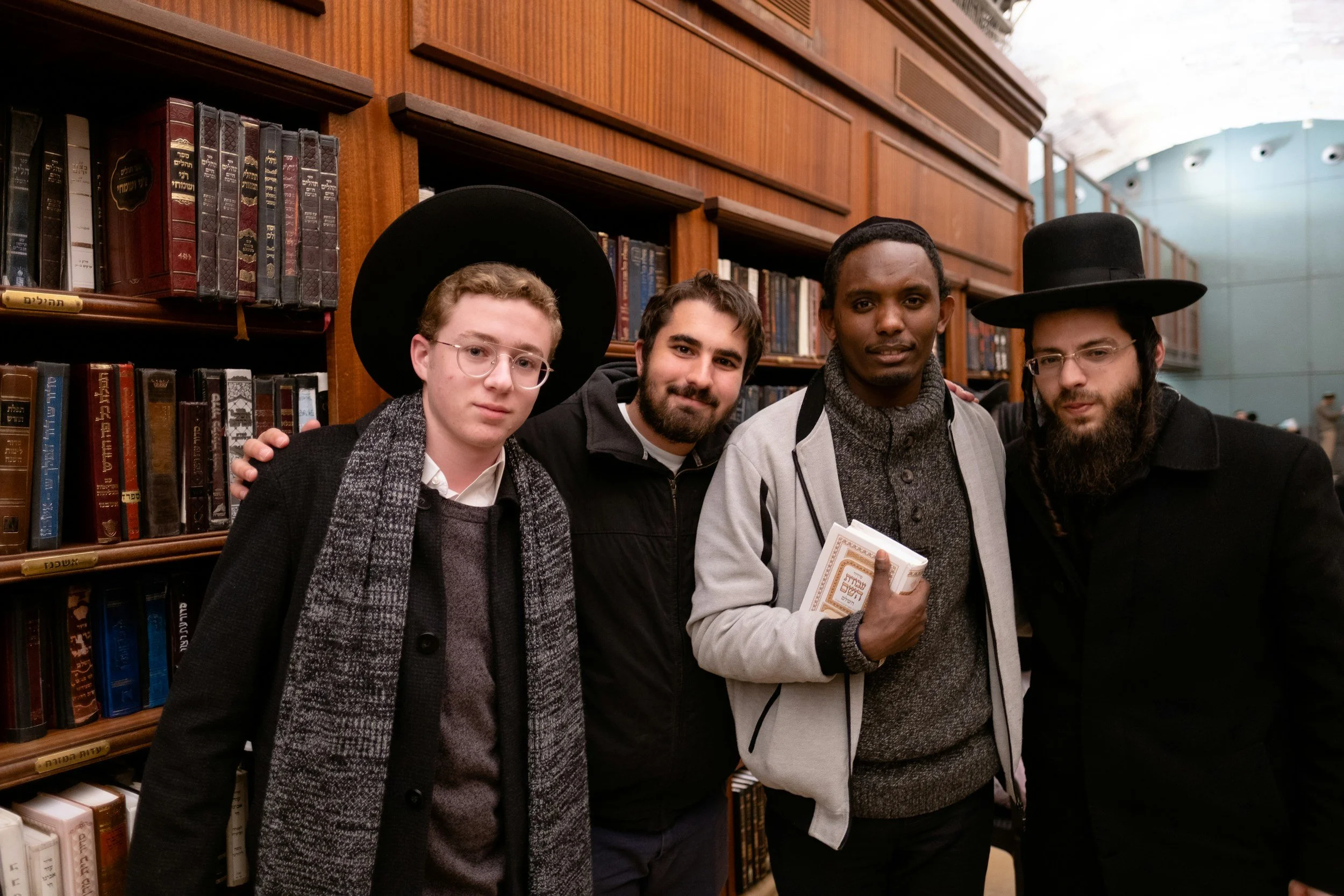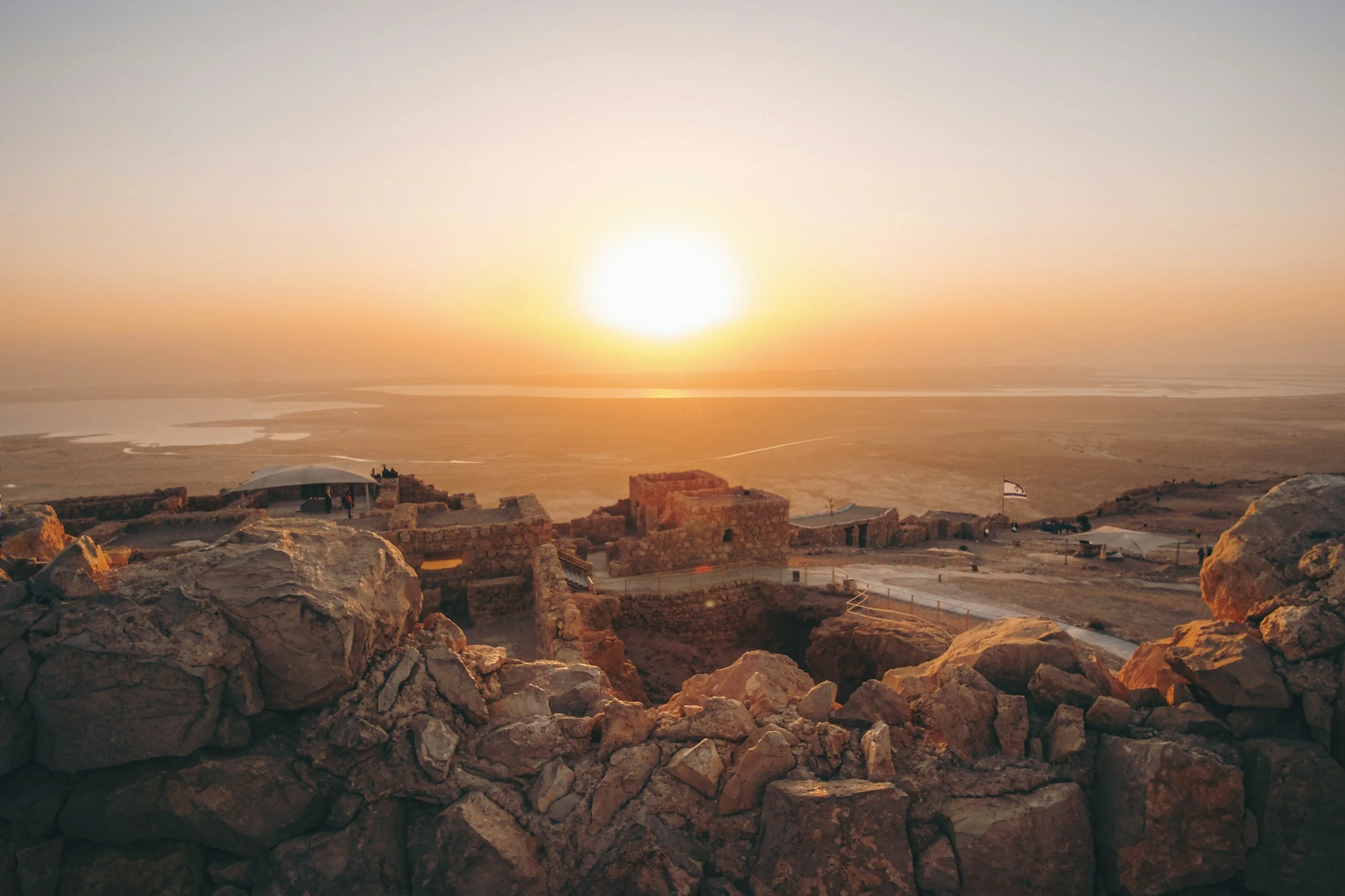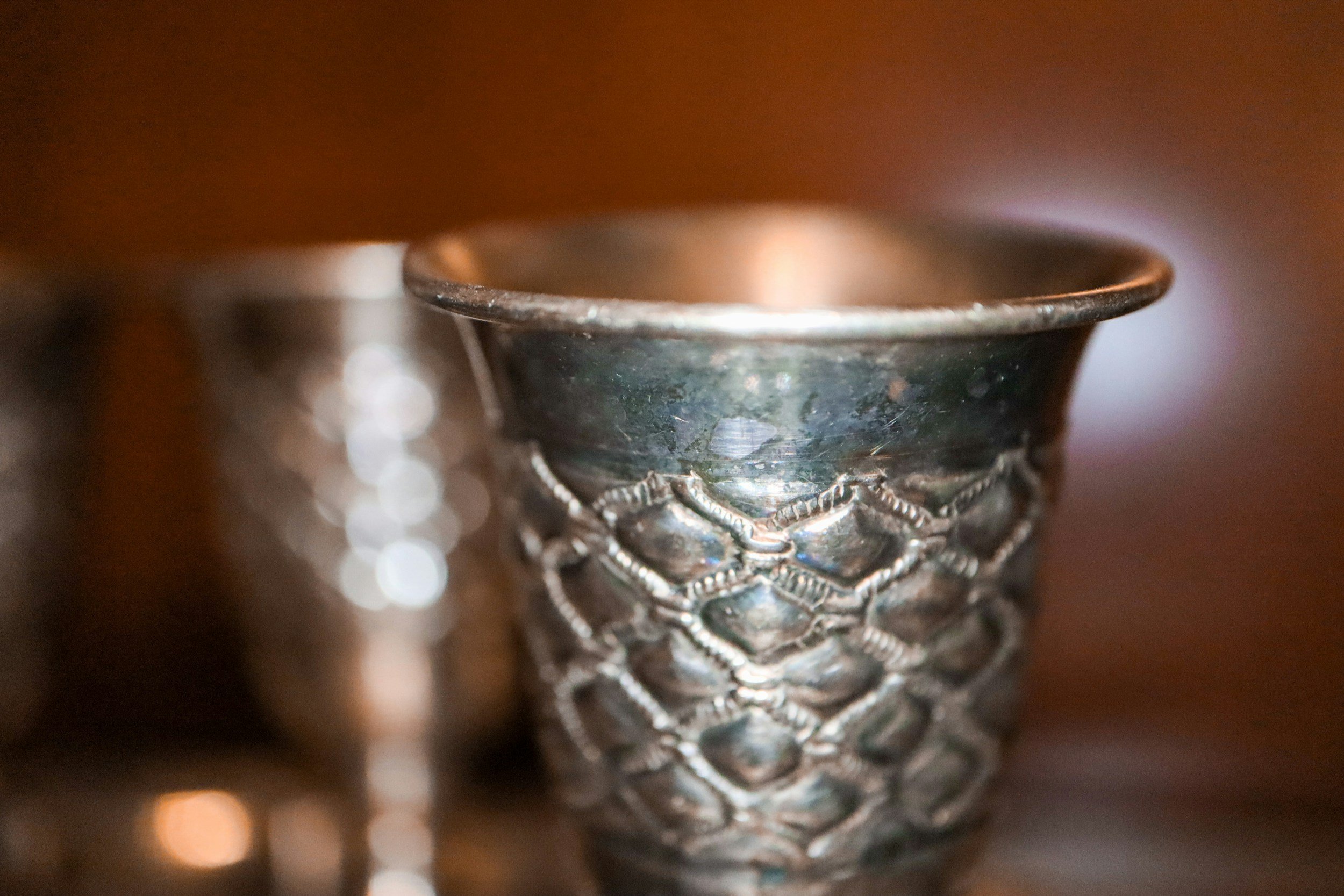
THE CURSE, THE COVENANT, & THE COLLAPSE
Eve bore the pain.
Adam bore the toil.
But today’s children bear the fruit of both neglect and self-worship.

Twice Exiled: The Struggle and Triumph of Diasporic Jews in Israel
Each community’s pain and contribution helped shape the Israel of today — a mosaic built by resilience. I often hear cries of injustice and complaints about the rigidity of the culture. I think of all our brothers who suffered to transcend nationalism into ancestralism.

The Restoration of Order
Reformation without Torah is chaos in sacred clothing. Restoration without foundation is like building on shifting sand. To restore Israel is to restore the architecture of heaven on earth — in home, in gender, in tribe, and in worship.

The Sarah Standard
Before we reestablish this ancestral tradition, we must train our men in the discipline of Abraham and the compassion of Solomon. Until the husbands of our nation are adequately trained and qualify at a near rabbinical level, taking multiple wives will inevitably become a stumbling block to our brothers and sisters.

Sacred Blueprint: The Divine Architecture of Shabbat
Shabbat is thus the weekly unveiling of Hashem’s original design—a covenantal duality in living form, where man and woman walk together in holiness, echoing the original Edenic call: “Male and female He created them… and He blessed them” (Genesis 1:27-28).

Divine Architecture in Exile
The sacred design of the Hebrew family—Ish and Isha—originates in Torah, not territory. Whether in ancient Judea, the Ibo heartlands of Nigeria, the hills of Zimbabwe, or an apartment in Atlanta, Hashem’s divine structure for family has never changed.

Ezer K’negdo: The Divine Architecture of the Hebrew Woman
The Hebrew woman’s role is to complete what man begins. His elevation becomes the raw material of her levitation. In Midrash Tanchuma (Pekudei 9), it is taught that the women of Israel brought their jewelry and fine linen for the Mishkan without being asked, levitating the physical into the holy. While the men toiled to build, the women infused the project with holiness, intention, and presence. They turned gold into glory.

Ish B’Aretz: The Esteem & Endurance of the Hebrew Man
A Hebrew man who cannot endure adversity is not ready to serve his family, his tribe, or his nation. He is unfit to bear the name Yisrael, meaning “one who wrestles with God and prevails.” The Hebrew male is a vessel of divine economy, quantized to build, engineered to withstand.

Our Ancestors Had Marriage Perfected
The Hebrew word for image is צֶלֶם (tzelem)—not just appearance, but a functional representation. This means that man and woman together reflect the whole operation of the divine will. They are not identical, but complementary. This is echoed in Genesis 2:18:

The People of the Land & Things We Shall Do in the Land
The Samaritans trace their descent to the tribes of Ephraim, Manasseh, and Levi, while many Igbo clans, particularly Nri and Aguleri, maintain oral histories that trace their lineage to Gad or Levi; however, Igbo heritage is not limited to these. Both groups consider ancestral identity an integral part of their religious practice.

Reclaiming Communal Finance
Today’s financial instability is not merely economic—it is profoundly ethical. As a corporate banker with over two decades of experience, I’ve managed portfolios that've generated hundreds of millions in profits, often at the expense of overleveraged, marginalized consumers. In deep subprime lending, profits are systematically extracted from vulnerable populations through opaque terms and crushing interest rates.

Exiled from Familiar Lands: Arab Jews & Igbos
Once in exile, particularly in Israel, Arab Jews faced cultural suppression and renaming. They were no longer “Iraqi,” “Tunisian,” or “Yemeni” Jews. They were classified under the imposed label “Mizrahi”—a vague, catch-all term meaning “Eastern” that erased centuries of specific Arab cultural and linguistic heritage.

Brothers Across the Nile
These Jews, far from Jerusalem or Aleppo, built lives in Khartoum, Omdurman, and Port Sudan. They raised families, prayed in Hebrew and Arabic, and helped shape Sudan’s cultural and economic life. Like many ancient peoples caught between politics and persecution, they were eventually forced to leave—quietly, painfully, with more memories than belongings.

Pseudo Kings & Palm-Wine Crowns
Instead of one king lording over everyone, we had village assemblies, age grades, and councils of elders.

Scapegoat Pt. 3
When the colonial ships docked on African shores, they didn’t just bring soldiers. They brought mirrors to blind, treaties to deceive, and gold to corrupt. And standing on the shoreline—proud in their regalia—were Africa’s kings and chiefs. Some resisted. Some negotiated. Others opened the gates.

SCAPEGOAT PT.2
Igbos have long been known for their fierce independence and egalitarian principles. Unlike some African societies with centralized monarchies, the Igbo practiced a decentralized, communal governance structure in which the people shared decision-making. This model shaped their social identity and played a critical role in their resistance to enslavement, as they valued autonomy and rejected foreign domination.

SCAPEGOAT Pt.1
These raids were a significant source of captives for the transatlantic trade, and they further illustrate the complicated network of African kingdoms involved in slavery. The Igala and Nupe's involvement underscores the violence and betrayal faced by the Igbo, who were not only enslaved by Europeans but also by other African peoples.

The sanctity of Death
"I will go down with thee into Egypt; and I will also surely bring thee up again; and Joseph shall put his hand upon thine eyes.”

Am I My Brother’s Keeper?
But it's not just about what we did or didn't do. It's about understanding the pain of our brothers and sisters and having the empathy to act in their defense.

Will the Hebrews Ever Get Marriage Right?
In Lagos, where modernization and urbanization have reduced the influence of rural tribal customs, Igbo individuals may find it easier to adapt to the more cosmopolitan setting, while their Hausa or Fulani partners may struggle with adjusting to modern, less-traditional gender expectations. This tension can contribute to marital dissatisfaction and, in some cases, divorce.
Influence of Religion:
